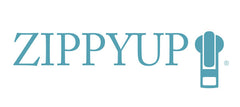Breastfeeding and bottle feeding are two primary methods of providing nourishment to newborns, each with its own set of benefits and considerations. In the United Kingdom, where healthcare and child-rearing practices are of paramount importance, the choice between breastfeeding and bottle feeding is a significant decision that parents must make. In this blog post, we will explore the advantages and challenges of both approaches, while shedding light on the cultural and societal factors that influence the choices parents make.
Benefits of Breastfeeding:
Breast milk is often referred to as "liquid gold" for its unmatched nutritional composition. Rich in antibodies, vitamins, and essential nutrients, breast milk supports a baby's immune system and overall development. In the UK, the National Health Service (NHS) recommends breastfeeding exclusively for the first six months of a baby's life, citing its numerous health benefits, including a reduced risk of infections, allergies, and chronic diseases later in life. Additionally, breastfeeding promotes bonding between the mother and baby, offering emotional and psychological benefits.
Challenges of Breastfeeding:
While breastfeeding offers an array of benefits, it can also present challenges for some mothers. Establishing a proper latch, managing sore nipples, and addressing low milk supply are common hurdles that new mothers may face. The UK government has implemented initiatives to provide support to breastfeeding mothers, including the availability of trained lactation consultants and breastfeeding clinics. However, the stigma around breastfeeding in public spaces can still deter some mothers from exclusively choosing this method.
Advantages of Bottle Feeding:
Bottle feeding, whether with formula or expressed breast milk, provides a practical alternative that allows both parents to share in the feeding responsibilities. This approach can be especially beneficial for families where breastfeeding is not feasible due to medical reasons or personal preferences. Modern infant formulas are designed to mimic the composition of breast milk, providing babies with the necessary nutrients for growth and development.
Considerations with Bottle Feeding:
Despite its advantages, bottle feeding is not without its considerations. Formula feeding may not offer the same immunity-boosting properties as breast milk, potentially increasing a baby's susceptibility to infections. Moreover, the cost of purchasing formula and the associated feeding equipment can add up over time. The UK government recommends choosing iron-fortified formula and following proper sterilization guidelines to ensure a baby's safety and well-being.
Cultural and Societal Influences:
Cultural norms, societal attitudes, and workplace policies play a significant role in shaping parents' decisions regarding infant feeding. While breastfeeding rates in the UK have been increasing, there is still room for improvement. Workplace support for breastfeeding, such as designated pumping areas, flexible work hours, and parental leave policies, can contribute to higher rates of breastfeeding continuation.
Conclusion:
The decision to breastfeed or bottle feed is a deeply personal one that depends on a variety of factors, including a mother's health, lifestyle, and individual circumstances. In the UK, both breastfeeding and bottle feeding are valid choices, and efforts are being made to provide the necessary support and information to parents regardless of their chosen method. The goal remains the same: to ensure the health and well-being of the baby while considering the needs and preferences of the parents.


